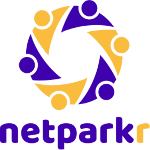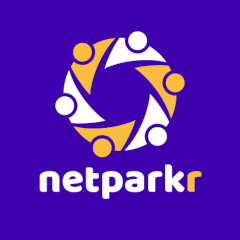Will Goto is the co-founder and CEO of Rize, a productivity tool that tracks your time to help you build better work habits. They have made +$11k in sales in 6 months after launching, while still being a two-person bootstrapped team. Their story starts with Humble Dot, a company they started with their co-founder in 2017. They raised over $3.1 million in funding over two rounds, but were unable to find product-market fit over three years. They eventually shut down the company in the middle of 2020 and returned just over a third of their investment money to their investors.
Rize is a productivity application that records your time to help you develop better work habits, and Will co-founded the company. They attained the top spot on Product Hunt in May. Six months after their first debut, in October, they generated over $11,000 in revenue with a two-person, bootstrapped staff.
Starting Over: How Rize Found Success by Focusing on Productivity
Will Goto, co-founder and CEO of Rize, is my name.
Rize is a productivity application that records your time in order to enhance your attention, get insight into how you spend your time, and establish more productive work habits. We charge $15 per month for a subscription to utilize the service.
Our tale begins with Humble Dot, a business that my co-founder and I founded in 2017. Over the course of two rounds, we raised over $3.1 million in funding. The first round, a $535k pre-seed round led by Afore Capital, and the second, a $2.6 million seed round led by Susa Ventures (Robinhood), totaled the funding raised. We had an outstanding staff of 8, we were on top of the world, and our name was starting to become known in the VC community.
But we fell short.
Over a period of three years, we failed to find product-market fit, despite funding. Nothing allowed us to achieve the parabolic growth that VCs required, despite the fact that we attempted every growth strategy and marketing plan we could think of. In the middle of 2020, we finally wound down the business and gave our investors back slightly over a third of their investment.
I was really sad, but it provided my co-founder and I time to consider why Humble Dot was such a difficult product to promote. The fact that we constructed a product without ever deciding on an initial niche or “wedge” was one of the key causes. We immediately quit our jobs at Twitter and started working on an open-source, asynchronous communication solution. Ultimately, we had a product that was competent at a variety of tasks but never truly outstanding for a particular demographic. Instead of conducting market research first and creating the greatest product that a market requires, we ultimately manufactured something and tried to promote it.
We began by focusing on software developers after closing down Humble Dot. After conducting several interviews, we discovered that “not feeling productive or efficient enough with time at work” was one of the top issues facing our target market. Our journey to Rize began when we explored value propositions that would benefit users with this productivity-focused aim in mind.
Why Speed Matters in Startup Success
Our major goal was to develop a productivity tracker with a feature that was lacking in most time management tools: the ability to provide users with practical information to increase their productivity. Interview results and waitlist comments indicated that we required a tool to assist individuals better understand how they use their time, increase their capacity for concentration, and develop better break-taking habits.
Rize’s first website’s early iteration featuring the call to action for the waitlist.
We started to work, iterated on our product using consumers on our waitlist, and kept these three value propositions in mind. Users were surveyed, their opinions were evaluated, changes were made, and the procedure was repeated. We understood which feature requests to prioritize and which to ignore since we were aware of who our target market was. That advice wasn’t available to us when we were creating Humble Dot.
Our iterations were swift since we didn’t require any outside assistance in terms of resources. This, in my opinion, is a prerequisite for startups since it enables them to compete with established players. Without speed, I believe a startup has no competitive advantage.
From Free Trials to Lifetime Subscriptions
Before we even started building, we developed a marketing plan. We evaluated the positions of the market’s rivals and chose one that would be most appropriate for the product we wished to develop and the interests of our target audience. This preliminary work was extremely beneficial to any marketing campaigns we conducted afterwards.
Overall, I believe that we employed three main strategies to expand the company:
We offer a free month of Rize to both the individual making and receiving the reference as part of our referral program. I believe that Rize’s brand and look have made this strategy function very well with the company. By offering a financial incentive, which people love to do, more people were encouraged to share wonderful things with their friends and coworkers.
Leveraging content producers is essentially the same strategy as the referral program but operates on a one-to-many basis. For YouTube videos, tweets, and other content that has a chance of reaching our target audience, we either offer the creator a lifetime subscription or a sponsorship.
When you receive lifetime and yearly sales-related money up front, it is considerably more beneficial for expanding your firm. Earning $80 in a single month is most likely 100 times more important to you at first than receiving $100 over the course of a year. Our cash flow is more than twice as high as our MRR, which enables us to immediately reinvest in growth strategies.
Maximizing Productivity
I am overjoyed with how well things are going. Just six months after becoming the top product of the day on Product Hunt, we achieved over $11,000 in sales for the month of October. Because we are still a two-person team without any outside funding sources, we are especially proud of this accomplishment.
With Rize, we want to provide everyone with useful data and insights to help them reach their productivity objectives. These objectives could be anything from working fewer hours to sharpening their concentration. Currently, the product can track your data and reflect it back to you so that you can draw your own conclusions, but we also want to include our own recommendations and methods. Our goal for Rize is to instruct new users on how to accomplish their objectives quickly.
Navigating the Unique Challenges of SEO for New Businesses
Every new business is unique. Even if the firms are quite similar, tactics and techniques that are effective for one may not be effective for another. Since SEO is a “obvious” choice for the kind of tool we’re selling, we initially believed it would be the best strategy for growth. It ended up being the most difficult for us to penetrate and gain momentum. We also didn’t anticipate that employing influencers would be a strategy that was successful.
For startups, in my opinion, you should just experiment with a variety of strategies and techniques, learn from them, and then either improve upon or modify your strategy. Other individuals can only do so much to support your development.
Tools for Success:
Make acquaintances with people who are starting businesses. Although the journey can be isolating and lonely, it doesn’t have to be, especially if you’re not feeling well. It keeps you inspired and motivated to keep going when you are around people who are experiencing the same thing as you.
For further information:
Visit our website to learn more about Rize. I’m quite available and active on Twitter @wrgoto for startup conversation, and I like assisting my colleagues.
We gather unique business case studies from all over the internet, to inspire you with a wide range of business ideas. This case study was supervised by our team and it definitely caught our interest. You can find other inspiring business stories here.







